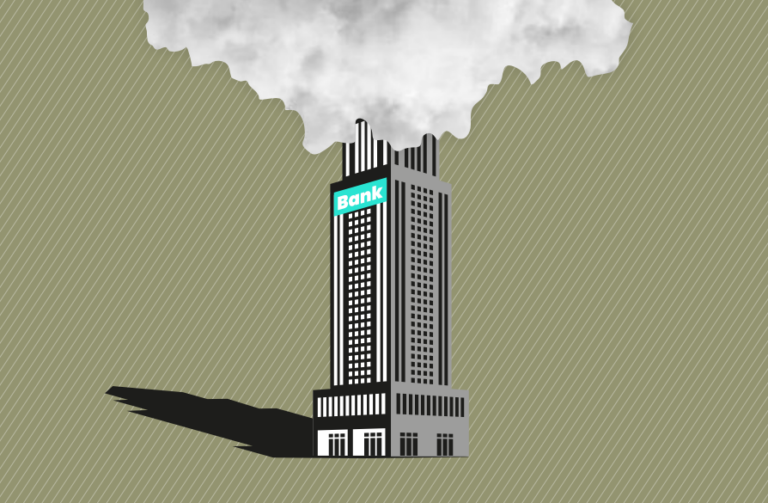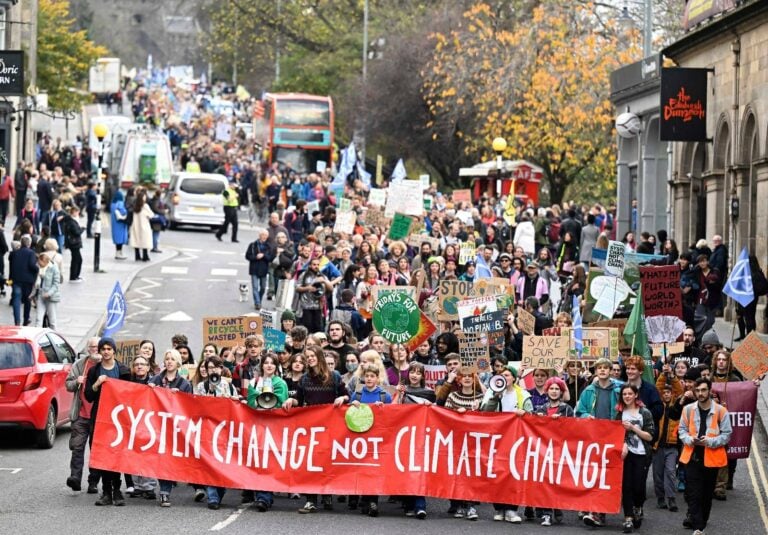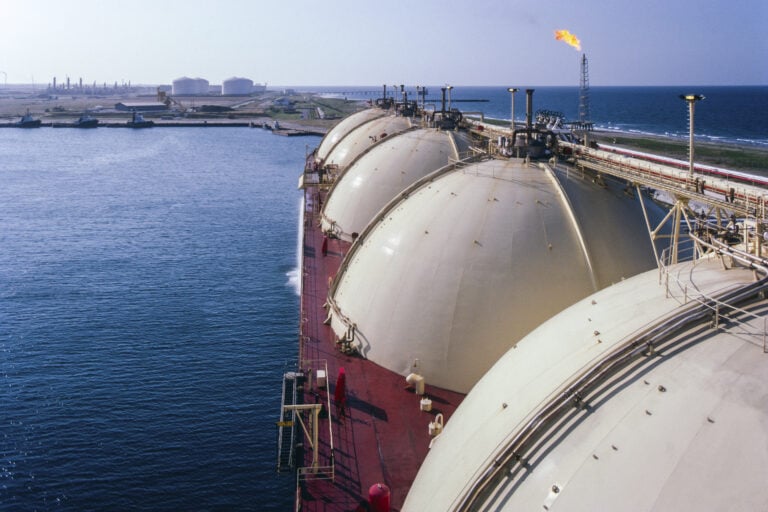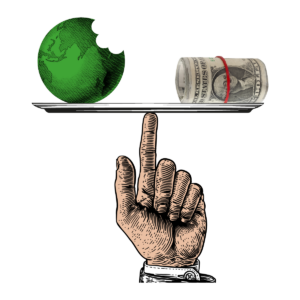Watching over the Financial industry
The financial industry has become a crucial and influential player in the economy, holding sway over corporations as well as people’s lives. Banks, investors, and insurance companies can determine how corporations, citizens, and governments are financed.
Our research at SOMO focuses on increasing the capacity of civil society to tackle the many problems created by the financial sector. Its business models, practices, financial products, and even political power allow various financial players to extract value from the economy, corporations, people, and the planet. Particular attention is paid to the financial sector’s role in, and impact on, the Global South.
A financial crisis or over-indebtedness affects the government’s budgets, jobs, and households. But the financial industry and its globally sprawling activities have become so complex that policymakers and citizens find it hard to understand and regulate it in a way that would ensure it is at the service of society and the economy.
The various voluntary sustainability standards have shown a concerning inability to address and curtail the financial sector’s support for abusive, destructive, and climate-altering activities. Our research focuses on how regulation can or cannot transform the financial sector while ensuring that alternatives can be created.
Highlighted Publications
-
The treaty trap: The miners Published on:
 Vincent KiezebrinkPosted in category:Publication
Vincent KiezebrinkPosted in category:Publication Vincent Kiezebrink
Vincent Kiezebrink
-
The treaty trap: The gas companies Published on:
 Vincent KiezebrinkPosted in category:Publication
Vincent KiezebrinkPosted in category:Publication Vincent Kiezebrink
Vincent Kiezebrink
-
Fintech’s red flags Published on:
 Myriam Vander StichelePosted in category:Publication
Myriam Vander StichelePosted in category:Publication Myriam Vander Stichele
Myriam Vander Stichele
Making the financial industry serve societies, people and the planet
At SOMO, our research exposes the various financial players, products, instruments, channels, and conducts that directly or indirectly finance activities that harm the life of communities, workers, and citizens, and contribute to climate change and environmental damage.
Policymakers increasingly look at banks and investors to finance much of the energy and economic transition to stay within the planet’s climate boundaries and achieve sustainable development. Initiatives like G20 occur at international, European, and national levels. However, they have limited impact due to their voluntary or inadequate scope and lack of strict binding measures, notably in reducing climate change or social misconduct. This is due to the political power of the financial industry and the increased risk of economic instability.
Our research supports civil society globally to advocate for the necessary changes in, and alternatives to, the financial system. All too often, these are refused by the financial sector and most policymakers. We play a crucial role in closely monitoring and analysing policies, legislative measures, and regulatory initiatives. We encourage banks, investors, and the insurance industry to direct their funds towards activities and corporations that prioritise and incorporate environmental, social, and good governance (ESG) factors.
Understanding Complex Corporate Structures
The increasingly complex structures of multinational companies have become the mechanisms that allow them to accumulate wealth while denying any accountability for negative impacts on people and the planet. Through convoluted supply chains, shell companies, special-purpose vehicles, and complex financial arrangements, they maximise gain and minimise responsibility. Read more about our work at SOMO.

Ensuring the financial system remains stable
The growth and size of various globally operating banks and institutional investors – such as asset managers, private pension funds and insurance companies – have made them systemically dangerous. They have become too big to fail and too interconnected so that when they are close to bankruptcy, even due to their own mismanagement, they are being saved by taxpayers’ money – notwithstanding regulations to the contrary.
Other players – such as hedge funds and fintech innovations – can cause financial instability and start financial crises, affecting millions of people and economies worldwide. Existing laws, standards, and supervision are still inadequate to make the financial sector operate safely or without authorities having to intervene to protect economic interests.
Our research at SOMO monitors and exposes areas of financial risks and potential financial crises and advocates for protecting people, societies, and the environment from financial misconduct.
-
G20 lobbying (pdf, 264.80 KB)

Democratic decision-making to regulate the financial industry
The financial sector can still be regulated or not subject to the laws and standards prohibiting financing activities and operations with harmful impacts. Decisions on the financial sector and the financial system are made at international, European, and national levels through laws, standards, trade, and investment treaties.
Decisions are often not made transparent for citizens and many stakeholders affected by these decisions. In contrast, the financial industry has well-resourced means and power to influence financial decision-makers, resulting in rules and laws that benefit the financial sector.
Our research monitors financial decision-making at various levels, including lobbying. It supports advocacy that makes sure demands from civil society are heard to support more democratic decision-making to ensure the financial sector serves society and prevents predatory conduct.
Do you need more information?
-

Myriam Vander Stichele
Senior Researcher
Latest updates
-
Why share buybacks are bad for the planet and peoplePosted in category:Opinion
 Myriam Vander StichelePublished on:
Myriam Vander StichelePublished on: Myriam Vander Stichele
Myriam Vander Stichele -
 The trillion-dollar threat of climate change profiteersPosted in category:Long read
The trillion-dollar threat of climate change profiteersPosted in category:Long read Myriam Vander StichelePublished on:
Myriam Vander StichelePublished on: -
 Oil and gas multinationals avoid up to $2 billion in taxes in MozambiquePosted in category:News
Oil and gas multinationals avoid up to $2 billion in taxes in MozambiquePosted in category:News Vincent KiezebrinkPublished on:
Vincent KiezebrinkPublished on:
Related Topics
Discover more of SOMO’s work and publications.





